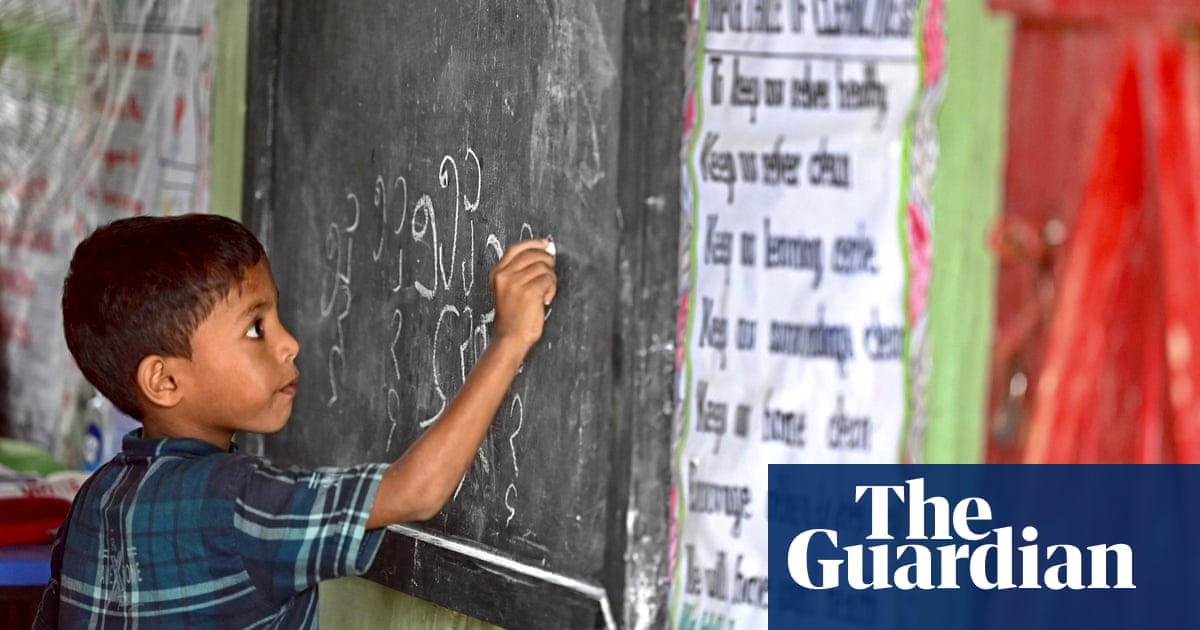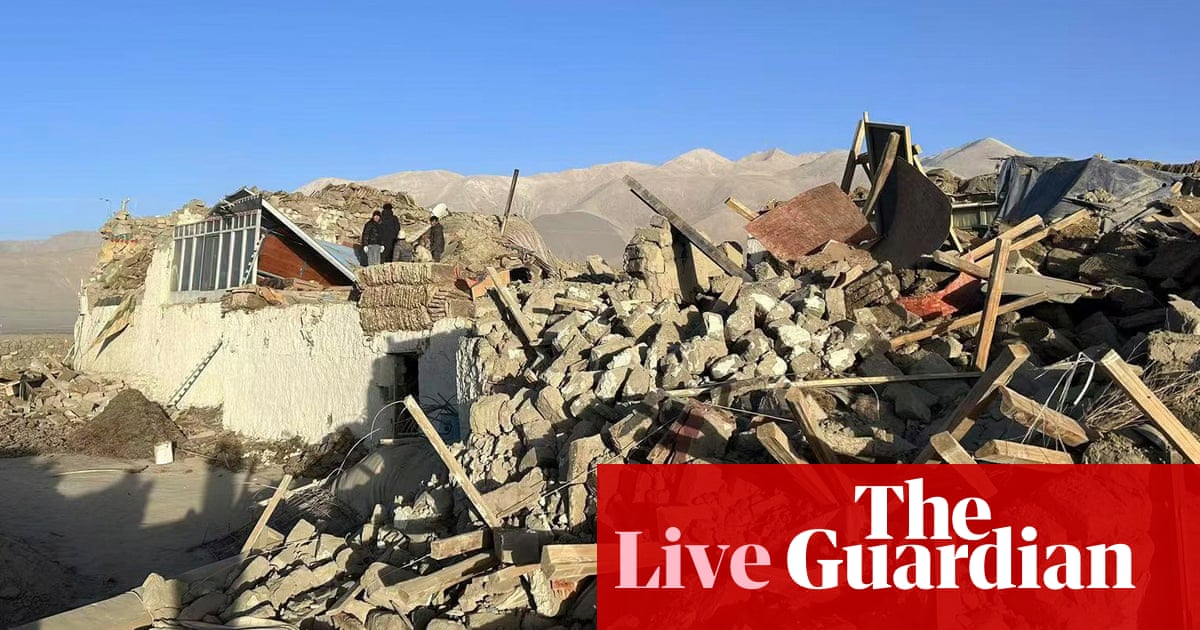In Rome on St Stephen’s Day 2022, the writer Hanif Kureishi took a fall that left him almost completely paralysed. Throughout the subsequent year he spent in hospitals – first in Italy, then in his home city of London – confronting the horror of his new reality as a severely disabled person, Kureishi dictated “dispatches” to his wife, Isabella, and his sons, which were published online. Helped by his family, the author has expanded these dispatches into a memoir of catastrophe whose driving question is nothing less than that of how its author is meant to go on: “Paki, writer, cripple: who am I now?”
I imagine that Shattered was at once the hardest and the easiest book Kureishi has ever written: hard because of the irreversibly awful circumstance that occasioned it; easy because, with material this intrinsically interesting – a reversal of fortunes so dramatic and grotesque – any halfway talented writer could fashion something readable. Sure enough, Shattered is an enthralling report on how a person can be forced to reckon with sudden, shocking change.
In news stories about Kureishi’s bedbound writings, I seem to remember the tone of the quoted dispatches being blacker, more despairing than is largely true of Shattered. A writer comfortably middlebrow enough to equate literature with “showbiz”, now that he’s reduced to the condition of “a Beckettian chattering mouth”, with the life he relished receding for ever into the past, Kureishi remains concerned with showing his readers a good time. Shattered is a disaster story with plentiful quips. “Since I became a vegetable I have never been so busy.” “I have to say that becoming paralysed is a great way to meet new people.” “It would be easier for everyone in Italy to learn English than for me to understand Italian.” In one of many passages about a stranger sticking a finger up his arse, he writes: “The last time a medical digit entered my backside was a few years ago. As the nurse flipped me over she asked, ‘How long did it take you to write Midnight’s Children?’”
That novel’s actual author, Salman Rushdie, is a friend of Kureishi who wrote to him every day while he was in hospital. Curiously, both men now have in common the fact of producing books about extreme experience late in their careers: Rushdie’s recent memoir, Knife, recounts how he was stabbed multiple times because his imaginative fancies had enraged the adherents of a religion whose God is apparently at once all-powerful and cripplingly insecure.
But let’s get back to Kureishi’s arse: while it’s his Beckettian mouth that does the dictating, his arse is in some regards the star of the show. It’s continually being probed, assessed, fingered and discussed by doctors and nurses. The indignities of his new regime of shitting and pissing, having his arse wiped by medical professionals and so on, proves a fertile theme. Isabella questions whether his readers really need to hear so much about his bodily functions; Kureishi, who has always had a keen feel for the pulse of human fascination, insists that that is exactly the stuff they want to hear about. He considers writing a hospital story whose title is a question the nurses routinely ask him: Have You Opened Your Bowels?

More than shitting, the bodily function of which Kureishi has long been a notably acute observer is, of course, sex. Now that he’s lost his sexual function “overnight”, he wonders what the fuss was all about, how he’d ever become so preoccupied with a pleasure so fleeting: “All sexuality feels like this to me now: foreign, almost alien.” But still a carnal fire flickers: he envies “able-bodied sexual beings” and hopes that, “eventually, I could be capable of a little light cunnilingus”.
Rather than confine his account to a series of hospital rooms, Kureishi reminisces about his career as a writer (and as a shagger – for the hell of it, he throws in an anecdote about having sex with a young female admirer in Amsterdam while her boyfriend watched). His reflections on the practice of writing are lively, not least when he focuses on the delights and difficulties of writing about sex. The novels of Henry Miller offered the teenage Kureishi “the great thrill of writing with interludes of pornography which you could cheerfully masturbate to”.
Having savoured a hedonistic heyday in the selfish 80s and liberal 90s, Kureishi never lost his taste for pleasure. He mentions “great cocaine nights” he spent with his children, and offers a gaily epicurean maxim: “Sex and drugs go together, like wine and a good meal.” Elsewhere, he expresses dismay – always welcome – at the new culture of sanctimony and timid self-censorship, reserving particular scorn for the inherently oppressive, homogenising work of sensitivity readers. “The writers I prefer, the ones I grew up with, are the wild ones, the demented, the rude ones who don’t give a damn.” Kureishi notes that his celebrated debut novel, The Buddha of Suburbia, with its cheerful abundance of racist slurs, might not even have been published today.
There are periodic lapses in Kureishi’s customary perceptive cruelty. For instance, he mentions deciding that he has belatedly come to see the value in marriage and will propose to Isabella – but no admission is made that his collapse into total dependency, with the radical shift in power it entails, may have inspired his new attitude. If this were a Kureishi novel, we might enter here into the disabled man’s feverish insomnias as he jealously obsesses over what his beloved gets up to when she leaves him alone after visiting hours. (If you think I’m in poor taste here, bear in mind that this is a novelist who, in a seemingly autobiographical novel about a writer who abandons his family, penned the memorably hyperbolic adage, “There are some fucks for which a person would have their partner and children drown in a freezing sea.”)
The ruthlessly candid Kureishi of old resurfaces when Isabella, tending her man with loving devotion, pauses and asks him if he’d have done the same for her: “I couldn’t answer. I don’t know.”
To anyone who’s ever enjoyed Kureishi’s books, it’s impossible not to read Shattered in a spirit of generosity and communion. For all its misery, his ordeal seems to have given him a new access to compassion, forcing him to notice an entire category of people – those who are disabled – who were previously all but invisible to him. Inevitably, Shattered is its own lifeline, and a neat exemplar of what we mean when we describe a book as “necessary”: its value for readers is at one with its urgency of expression to the human being drowning in the experience it attempts to redeem.
-
Shattered by Hanif Kureishi is published by Hamish Hamilton (£18.99). To support the Guardian and Observer order your copy at guardianbookshop.com. Delivery charges may apply

.png) 2 months ago
21
2 months ago
21













































